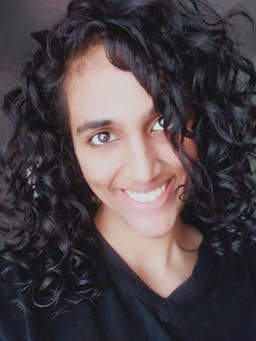My first lesson on Peace
Jun 4, 2019
Story
On September 11, 2001, at 6:00 PM, IST, I was getting my hands decorated with henna. It was something I wanted for long – the very idea of designs etched onto your palms with the exuberant smell of the wonder leaf was a coveted dream. School was closed, and I had nothing to do. I pestered my parents to take me to Mrs. A’s house, there were too many people whose favourable recommendation of her skills won me over.
As the kindly lady deftly wove intricate magic in sap green on my hand, we shared a small conversation about ourselves. She told me about her family, about her plans for Eid, and asked me about my plans for Diwali. It was still early – but on the last lap of any year, these holidays mean a lot. Mr. A shuffled into the room and greeted me pleasantly. He was intrigued by a teenager’s inclination towards henna – especially when there was no occasion needing it – and engaged me in conversation about school, what I wanted to work as, and what I liked studying.
Mr. A switched on the television. What we saw next made our breath catch in our throats. An aircraft dovetailed into the North Wing of the World Trade Centre. I remembered the building from a gigantic picture of New York by Night that my father held onto for years at home, and now it was fast dissipating into dust. Mrs. A stopped and turned to face the television. For about 20 minutes, we remained transfixed by the horror that unfolded before us. And just when we thought it was surreal, on live television, another flight rammed into the South Wing. By then, with much media conjecture and sudden talk-show-like debates, it was clear that this was no random accident. Mrs. A inhaled sharply, sending up a small prayer to Allah. Mr. A said that it was a terrible, terrible crime – how could anyone even think of planning, leave alone doing such a thing? By late evening, it became clear that this was a massive plan, with masterminds of incomparable deviousness behind it.
You might wonder where this piece is going. A teenager in a city in South India, watching the attacks of 9/11 unfold on television: well, what’s the big deal? Scores of people saw it on television, and this girl was like many others in the world: far away, personally and physically unaffected. But here’s what that experience taught me. I was sitting with two people who practiced Islam, and in the course of that entire 90 minutes that I spent at their house, they expressed nothing besides outrage, anger and grief at the attacks. In the days that followed, I read and heard of the hate that was unleashed at people who practiced Islam. Islamophobia became a word, a species in the genus of Xenophobia.
That day taught me some important lessons. Radical elements exist everywhere – whether in the form of the clannish parochialism of linguistic exclusion, or in the form of overt violence in the name of religion. But that should not, and does not discount humanism. That who you are is not determined by the group you belong to – but the choices you make. That it is your actions, your words and your choices that decide what side you are on, and that there is a thin red line dividing the two sides.
In those days that followed, there was talk about terrorism, inextricably linking it with Islam in the minds of most people around me. I was young, and my questioning capacity didn’t extend beyond that of a teenager’s. And when I did my asking, wondering why people attributed the crime of some to a whole community, what I heard in response most of the time, was ignorance. Ignorance as silence, ignorance as wrong answers, ignorance as anger, ignorance as mob-mentality.
By and by, the answers came to me. We live in a world of fear, intimidation and ignorance. We love to demonize the other when it is an unknown, but the moment it becomes a “known”, we can fiercely protect it like our own. I learned that Peace is a choice. I learned that it is the choice of the courageous, not the resort of the weak. I learned that there is a huge difference between culture and religion, tradition and faith, radicalism and ideology.
In those 90 minutes in my memory, two Hindus and two Muslims watched one of the world’s biggest brush with terrorism. We watched, as humans. We felt the pain, as humans. We felt the anger, as humans. And when we act, we must act as humans.
That was my first lesson on peace.




